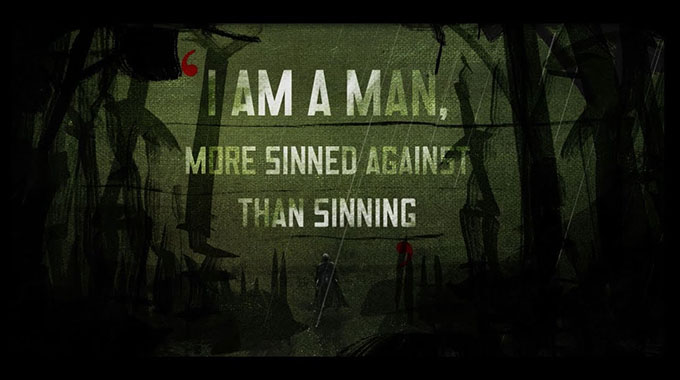@JAMWANDA2 ON SATURDAY – The Zim Youths: One fringe on the bier!

So-called Western Civilisations
University of Chicago has a vast series spanning across ages and phases of what it terms Western Civilisations. The series come under a simple title: Readings in Western Civilisation. I am reading one of the volumes.
Lofty self-claims
Those alive to language would have detected my reservations on the notion of Western Civilisation. It is a gross misappropriation of what by all counts is a hybrid civilisation whose origins show clear pathways linking to different civilisations, all of them pre-dating this so-called Western Civilisation. One prime goal of this column is to challenge Eurocentrism, including its routinely unexamined claims, vocabulary, terms and periodisations, all of them invented as its props for falsely claimed greatness.
The young people of today
The Volume I am reading, carries extracts from two young French intellectuals: Henri Massis and Alfred de Tarde. These two French lads initially wrote an essay, “The Young People of Today”; it was developed into a book first published in 1912. The source of both was an opinionated survey carried out by the two writers, on mental disposition and temperament of a generation born around 1890.

Henri Massis
The year coincided with the occupation of parts of Zimbabwe, with the European Civil War which is misnamed in History as the First World War, coming 24 years later.
Manifesto on Futurism
About that same time, between 1909 and 1910, a Milanese poet and editor, one FT Marinetti, published a Manifesto on Futurism. Futurism regarded itself as some avant-garde of new art which sought to break with literary tradition and canons developed thereof. It worshipped and romanced war and violence, treating both as “remedy and agent for great changes”.
Although written from different countries, both treatise captured the spirit of that Age: a certain militancy and craving for war which would later consume youthful Europe between 1914 and 1918.
This pervasive love for war made the catastrophe of 1914-1918 not just inevitable, but a deserved comeuppance for a generation which mistook war for a dinner party.
Generation of incensed righteousness
The Young People of Today gave the reading world a beautifully stinking description of a young, angry, deeply cynical and pessimistic generation which mistakenly believed in its own wronged righteousness.
The treatise described this as, “Illusory revenge, the revenge of wounded pride! A real impotence consol[ing] itself with the dream of an ideal power. The fettered will forg[ing] for itself an imaginary liberty within a spiritual world.”
More sinned against….
Ignore the bombastic turn of phrases, and concentrate on the drift of intended meaning. The two youngsters are railing against what one might term self-righteous indignation of a generation that feigns itself pure and faultless, a generation which angrily regards itself as “more sinned against than sinning”.

It feigns itself virtuous, simply by time of its birth. Indeed a victim of “incensed idealism”, as the two writers put it.
Capitalism’s Angels
Let me tickle your brains a little more. Another fascinating writer, Gordon Rattray Taylor gave us a classic titled, “The Angel-Makers: A study in the psychological origins of historical change, 1750-1850”.
The book focuses on a Century which leads to that inhabited by the aforementioned two lads. But Taylor’s focus is on church-mediated religious fervour and fervency which broke out in the 18th and 19th century, leading moral revivalism.
It is a fervency we felt here in Africa as the missionary zeal incarnated by the likes of David Livingstone and Robert Moffat.
Roots of austere moralism
Except for me, the value of that book lies in its locating 18th century moral and religious fervency in the culture of parsimony and hard work created by the British middle class as it founded and launched Industrial Capitalism.
It’s a connection I have always suspected, but without mustering evidence. Drunk with avarice which drained its sense of human compassion, says Taylor, this dashing British middle class subjected the British working class to grim, endless labour under subhuman industrial conditions, all for paltry wages.
Its passion was for super-profits. Consequently, this class hated pleasure and loafing, which diminished its chances for huge profits.
Profit and Pulpit
Positive that the Church had an abiding hold on the British mind, this nascent but aggressive bourgeois class infused a certain fundamentalism into scriptures, to turn idleness, pleasure and excesses of drink a core part of the seven deadly sins.
Or the obverse, making hard work for no or little pay next to Godliness. That way profit and pulpit fused. Out of that 18th century mores of austerity, Gordon Rattray Taylor percipiently drew one of life: harsh social conditions often breed pessimism and intense “zeal for religion”.
Marx and Engels would arrive at the same conclusion; they maintained that religion was an “opium for the masses”.

Karl Marx
Need we wonder then why the pain and regression of sanctions under our First Republic released so much Pentecostal energy in our people; why that same fervour seems to be ebbing now, given the return of hope and self-belief associated with visible progress under the Second Republic?
Now to my focus for this week.
Majority of Zimbabwean youths
Daily I interact with many youngsters, all of them born well after Independence. We engage on a wide array of issues, their hopes and frustrations included.
We share readings on happenings in our country, and in the world about us. Especially, we debate what it means to be Zimbabwean, by way of duties and obligations. By way of baseline expectations we form and deserve as citizens of this great Land: from our land, from our subsoil resources; from institutions that preside over affairs our nation, foremost Government in which I am a cog.
An adventitious lot
Many of these youths are committed to their nation. They work hard to move themselves forward, in the process developing their country. Some are in business, others are self-employed.
A good many more have ventured into agriculture, itself a nonesuch during our days as youths. There is a cry for land from this dashing substrum, a cry I try and modestly meet by passing on land demands to my colleague, Dr Basera.

Dr John Basera
Those lucky enough to access land, have brought business acumen in agriculture, thus transforming it like never seen before.
Here is a generation taking on and fulfilling a national mission.
Making it to the top
I make particular mention of yet another sub-group within this substratum.
It comprises self-taught and self-employed youngsters who, out of pressing circumstances of global unemployment, have realised they can no longer hunt for jobs. Like we did in our privileged days, when graduates were a rare species. Not any more.
Graduates are now as rare and scarce as white sand in the Kalahari! This is a rare group which has forged entrepreneurship out of adversity. I salute them.
All these I have mentioned above, tip the scales, making them the majority of the substratum. By and large, our youths give us great hope, give us great pride.
They do not hesitate to slur themselves with grime, in order to make it to the top perch.
Bitter, philosophical fringe
But then comes a genus which is too obtrusive, too vocal, to go unnoticed.
That section provokes my rheum; I have no kind words for it, and I don’t care to provoke their ire. I am referring to the youths fringe which is philosophically bitter and lazy, and for whom the bells of doom and failure daily tolls.
Bitter nihilists who feel severely wronged and ironically owed by those before then, and by the whole country they claim, but without feeling a part of it!
They have convinced themselves they are a righteous generation unto themselves, whose virtue comes by date of birth and not an ounce of effort, and whose blight flows from those before them; comes from the wronged times their predecessors made and lived!
They thus feel sacrificed as a generation, and are suffused with a militant sense of compensatory entitlement. They are perennially owed!
Desolate Negation
Given to projecting themselves as a group, they never exist singly; or act in their own individual right, and thus will admit to no responsibility, fallibility or culpability.
No! Their amassed intellect – most of them are university graduates made so by the very generation they claim wronged and blighted them – revels in intellectualising inaction, which has become their calling, faith and religion.
The result is a “desolate negation”, as it was called by the two French Scholars I have quoted above; or, in the words of Baudelaire and Flaubert, “a deadly fatigue of living, a dejected perception of the vanity of all effort.”
Unengaged, all-blaming
You point to them many of their peers and those after them who do well in life, their response is: we cannot all do well!
You show them those of their age on the land; their response: we can’t all be farmers!
You tell them of openings in the civil service; they retort: to earn peanuts? Meanwhile they rail at you for overstaying in the service, which they won’t join to replace you and replenish the service.
But they expect public goods flawlessly delivered into their doorsteps. When they see you driving a Government car, they think you are flaunting ill-gotten wealth.
When they see your kid in school, often dogged by numerous unpaid fees, they smell lucre!
Their pastime is Twitter, spewing bile from all reflexes. You show them a monument, they invent a sod to wring smell!
Repudiating what they want to take over
It is a very bitter, fault-apportioning fringe whose self-view is a certain kind of timeless righteousness ironically begot by time.
What frightens me about this fringe in a generation is its detachment to the nation that begot it; to the founding processes of the nation they inhabit and claim to want to regenerate, ironically by ceding that same nation’s sovereignty, by reversing that nation’s history!
A fringe that pooh-poohs the sacrifices of struggle made by those before it; and worse, which romances colonialism which compelled that struggle and the stupendous sacrifices made towards its success!
So the fringe gives us the “Ian Douglas Smith-was-better” refrain, itself a complete repudiation of the very nation they purport to want to remake and to govern!
On a good day they oppose everything about that nation; on a bad day they crave for sanctions against it, for its second invasion and re-conquest!
The other day one such youth from this fringe posted his militant image, armed with a pellet gun he thought would annihilate his sinning predecessor generation, to replace it by a brave new one — that of his own!
A fringe on the bier
Part of this fringe has left the country, for “better” foreign countries beyond. Once there, it realises self-exile is no alchemy for transmuting philosophical bitter indolence into fabulous wealth it failed to get home.
Poverty dogs it into exile, in the process sharpening its bitterness against the home-country it deserted! One of them even threatened terrorism against this country, all in self-consuming suicidal futility!
Tragically, a good many of them end of living that futility: they chew and eat drugs, become morose and, in final act of self-immolation or desolate self-negation, commit actual suicide!
A real fringe on the bier!
I shudder to imagine how they would have survived the times we lived as youths, bearing the full weight of a bitter, protracted Struggle from which there was no escape. Yet we still held our own, shared in the sacrifice and built a brave new world they now spit on.
I pray for this fringe!









Comments